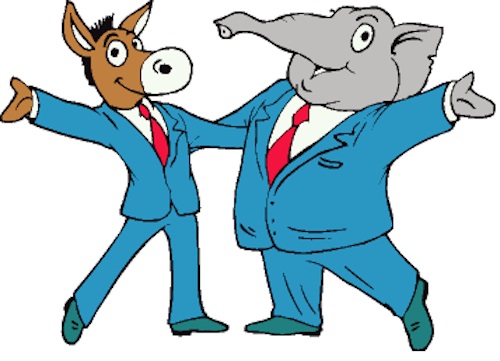Politics can often be confusing, but if you dig just below the surface, it doesn’t have to be. Consider this. Pew recently did a study on Presidential candidate traits, and they found some things you’d expect: military experience, Governor, business background, white male, etc, etc. (Although “woman” did appear on the list, which is good and all.) The problem is, there’s often a disconnect between what people say they want and what they actually want — you find this in hiring processes too — which is perhaps best explained in this anecdote:
In early 2007 voters placed military experience at the top of their list of attributes they said would make them more likely to vote for a candidate. That didn’t help veteran John McCain. Tea Party voters find military service particularly appealing. Seventy-one percent say it would increase the likelihood they would vote for a candidate. Yet Tea Party conservatives were some of McCain’s harshest critics. A version of the same was true for business experience and support for Mitt Romney among Tea Party members. Rep. Paul Ryan is the only possible presidential candidate who has “many years of experience” in Washington—precisely the kind of attribute Tea Party voters dislike so much—and yet, as a Tea Party favorite, he would almost certainly be forgiven for it.
Then there’s this: everyone seems to hate Congress right now, but there are 405 House races this November where the leader seems more than 90 percent likely to win. In other words, people hate incumbents, yet mostly they’ll cruise to victory. Huh? Why?
The answer is pretty simple: most people vote simply by party orientation. Some political scientists think it makes up 85 percent of the decision-making process, if not more. (When I was first learning about politics and all that, my dad used to come home on Election Day and once in a while tell me, “I just voted down the same side/color,” so clearly this is a real thing.) We are a polarized nation, but we stick to our sides for the most part. This is why it’s hard to envision a GOP candidate winning the White House in 2016: if all states go the way they should, it’s a nearly impossible map for the Republicans.
So just remember: politics can be confusing as hell at times, but at the end of the day, it all goes back to the same principles that helped develop humanity — in-groups and out-groups.
